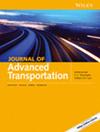Advancing Road Traffic Safety Through Stochastic Modeling: An Innovative Assessment of Emergency Road Rescue Systems With the mn Hypercube Queuing Model
Abstract
In light of the escalating global concern over road traffic safety, which claims over a million lives annually, this study endeavors to fortify the foundational structures of emergency road rescue systems (ERRSs) through the lens of advanced theoretical modeling. Recognizing the unpredictability of road accidents in temporal and spatial dimensions, we propose a novel assessment methodology leveraging the mn hypercube queuing model (mn HQM) to account for the stochastic nature of road accidents and the variable service rates driven by demand-side factors such as geographical location disparities. The essence of our contribution lies in the development of the approximate hypercube queuing (AHQ) algorithm, designed to address the computational complexities inherent in large-scale ERRS, making it possible to evaluate ERRS under a wide range of scenarios with improved accuracy and efficiency. Validation of the AHQ algorithm demonstrates its reliability and effectiveness in capturing the dynamics of emergency road rescue operations. Further, the application of this novel assessment method to a real-world road rescue case in the X Mountain area offers critical insights into the system’s performance. These findings underscore the potential of our approach to enhance the operational readiness and responsiveness of ERRS, thereby contributing to the reduction of casualties and losses in the aftermath of road traffic accidents.


 求助内容:
求助内容: 应助结果提醒方式:
应助结果提醒方式:


